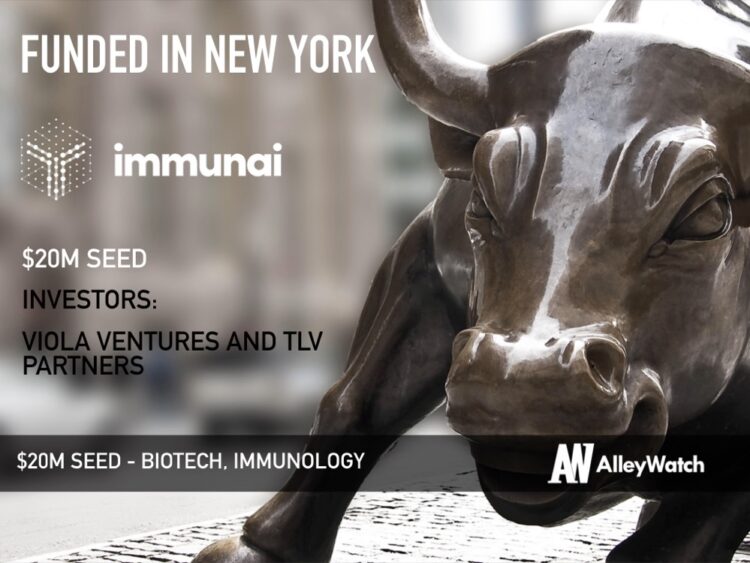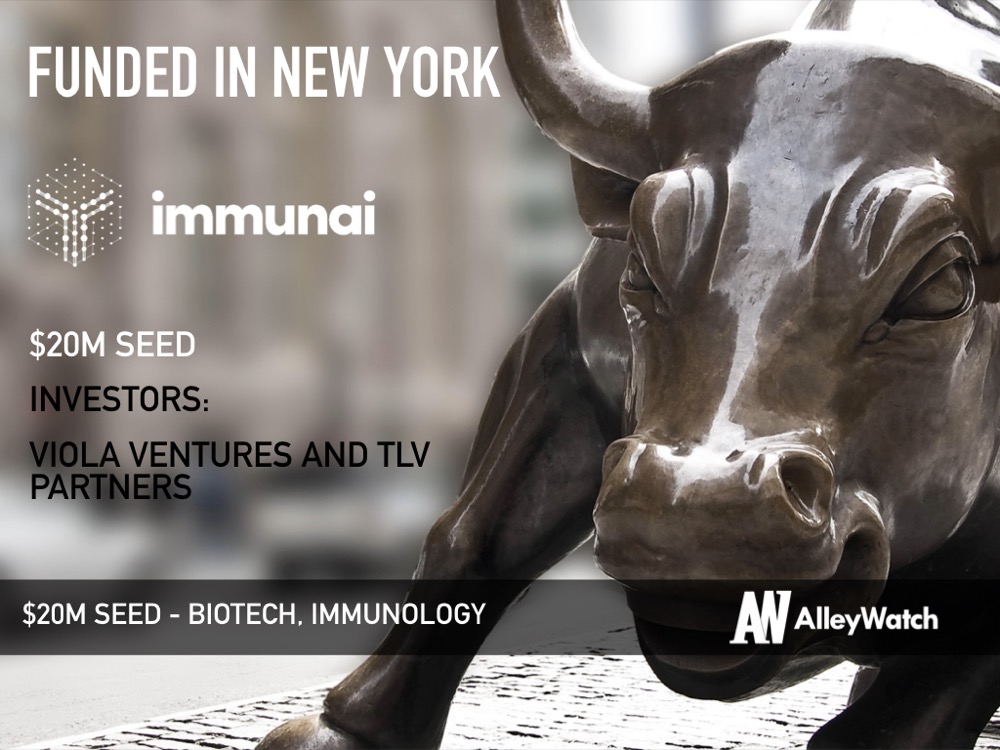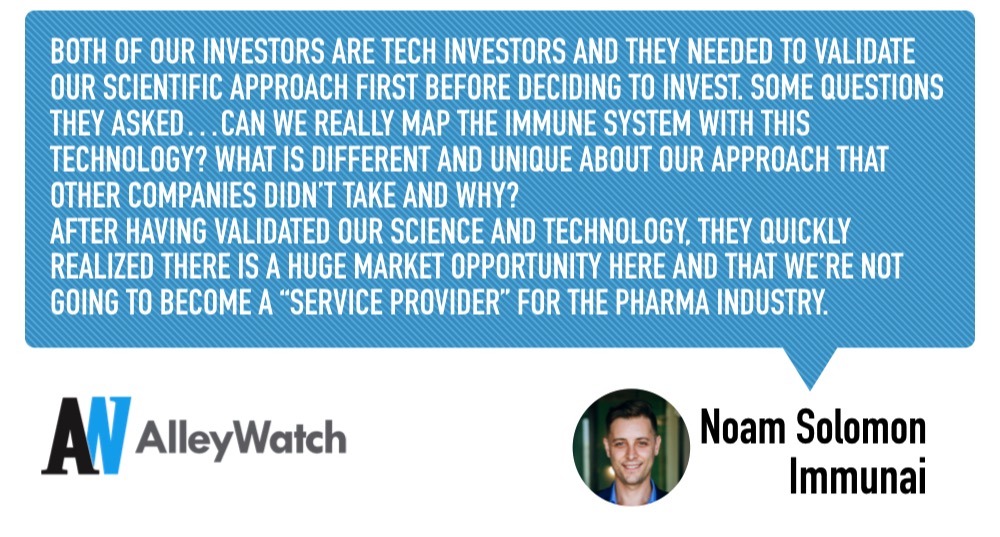The human immune system is one of the most complex systems and still remains a mystery to scientists and researchers, partly due to the trillions of cells making it up. Many companies are trying to decode the immune system and Immunai, the two-year-old startup, just emerged from stealth mode with a fresh round of funding to join the field. Immunai offers a proprietary end-to-end, vertically integrated platform that uses AI and ML to provide a complete understanding of the entire immune system and its functions. According to Immunai, this platform can outperform legacy companies by analyzing 10,000x more data for each cell. One of Immunai’s primary use case is in helping develop cancer therapies. Current immunotherapy drugs for cancer have worked for a small percentage of patients, but the team at Immunai hopes that a complete, detailed map of the immune system can help partners create targeted drugs and assist researchers in understanding why drug therapies are successful in some patients but not in others.
AlleyWatch sat down with CEO and cofounder Noam Solomon to learn more about Immunai, the company’s future plans, and recent round of funding. Solomon is a former postdoctoral researcher at Harvard and MIT.
Who were your investors and how much did you raise?
Immunai raised $20M in seed funding led by Viola Ventures and TLV Partners.
Tell us about the product or service that Immunai offers.
We combine single-cell biology with AI to provide pharma companies, hospitals, and clinics with a comprehensive understanding of the immune system to better detect, diagnose, and treat disease. We have an end-to-end vertically integrated platform on both the lab and computational side that allows us to analyze tens of thousands of genes to build the largest database for immunology to-date.
 What inspired the start of Immunai?
What inspired the start of Immunai?
Together with my cofounder, we wanted to transfer learning methods with AI and define a comprehensive immunological knowledge base. We realized that almost 50% of melanoma patients were treated well with immunotherapy, but researchers could not transcend it to lesser-known cancer indications because there’s no real database for cancer or immunity. The main issue here is that all types of diseases, not just cancer, come back to the immune system and affect how it functions. And, without a comprehensive understanding of the immune system, we won’t have highly targeted and effective drugs that actually improve our health.
How is Immunai different?
At Immunai, we can take the complexity of the immune system, simplify it, and derive insights from it. Companies have been trying to understand the immune system for years but have only been looking at two cells (PCR and TCR) and couldn’t solve the prohibitive batch problem. We’re disrupting legacy companies by analyzing 10,000X more data for each cell than they are.
What market does Immunai target and how big is it?
We aim to work with pharmaceutical companies, hospitals, labs, and clinics.
What’s your business model?
We price our offering depending on specific projects and the scope of the project. The benefit of this is since we are an early-stage company, our model is flexible towards our client’s goals.
How has COVID-19 impacted your business?
Since we’re already a distributed team, we’ve been working well without access to the office. We’ve been making sure our employees are safe and healthy by following New York’s protocols; for example, we’ve had to slow down the speed of sample processing so that only a few people are in the lab at a time.
What was the funding process like?
TLV Partners essentially decided to invest after one meeting, having been impressed by our team and vision. They then introduced us to Viola Ventures who was also impressed by our team and vision. Viola took a few weeks to do thorough due diligence on the business and validate the technical and scientific approach before investing.
What are the biggest challenges that you faced while raising capital?
Both of our investors are tech investors and they needed to validate our scientific approach first before deciding to invest. Some questions they asked: Why would single-cell sequencing for peripheral blood mononuclear cells be better than other approaches? Can we really map the immune system with this technology? What is different and unique about our approach that other companies didn’t take and why? Is our machine learning really differentiated? Can other MIT/Stanford/Palantir engineers try to do the same, and what is the competitive advantage that we bring?
After having validated our science and technology, they quickly realized there is a huge market opportunity here and that we’re not going to become a “service provider” for the pharma industry.
What factors about your business led your investors to write the check?
Our technology and scientific work speaks for itself. Our scientific founders have published papers in Nature Medicine and Nature Biotechnology that show the validity of the approach. These papers show that patients who responded to immunotherapies (it is specific immunotherapies and specific indications) had differentiated immune signatures in their peripheral blood. Our technology generates the relevant data (with single-cell sequencing technology), integrates and normalizes the data (with proprietary computational technologies), and mines for the relevant biomarkers with our AI-trained neural networks that are tailor-made for this type of sequencing data.
Our founding team is a multidisciplinary team of scientists and engineers of the highest caliber, Harvard-MIT-Stanford-PICI, and we were able to easily communicate our approach, differentiators, and competitive advantage. We already have partners from top hospitals and research institutions that spoke highly of us and of our approach, and we were in advanced discussions with our current commercial partners.
It became clear that Immunai has the potential to become a critical component in the acceleration of clinical trials for drugs and in early drug discovery, and that is a game-changer for our commercial partners.
What are the milestones you plan to achieve in the next six months?
With our funding, we plan to further develop our technology and business functions while expanding our team of scientists, engineers, and machine learning experts. The goal is to continue growing our database so that we can apply our learning from one disease to another.
With our funding, we plan to further develop our technology and business functions while expanding our team of scientists, engineers, and machine learning experts. The goal is to continue growing our database so that we can apply our learning from one disease to another.
What advice can you offer companies in New York that do not have a fresh injection of capital in the bank?
First of all, I recommend identifying and securing the lowest hanging monetizable assets and then monetizing them. To bring business home, sign small contracts – this brings money home, shows investors you know how to sign contracts and make customers and partners trust you by validating your business and product. Especially now, with COVID-19, there’s a lot of uncertainty in the air, and this impacts everything – a product-market-fit pre-COVID-19 may not exist anymore and you need to keep validating and asking all the hard questions. Talking to customers and partners tells you what we need to know and signing small contracts is a strong signal to investors that you’re doing something right.
Where do you see the company going now over the near term?
Our mission is to make the biggest impact on healthcare with machine learning by giving researchers and clinicians a better understanding of the immune system.
What’s your favorite restaurant in the city?
My favorite restaurant in the city right now is Avant Garden, as they have great vegan cuisine.
You are seconds away from signing up for the hottest list in New York Tech! Join the millions and keep up with the stories shaping entrepreneurship. Sign up today





